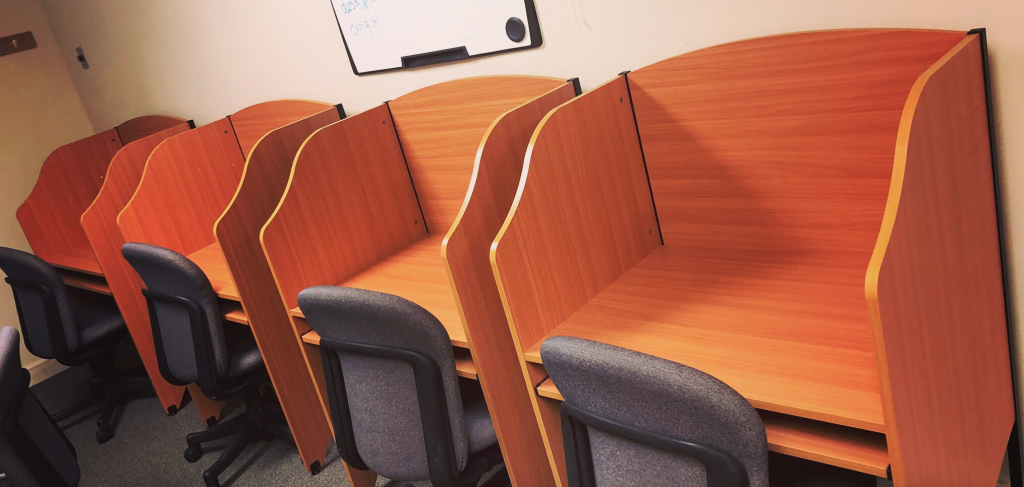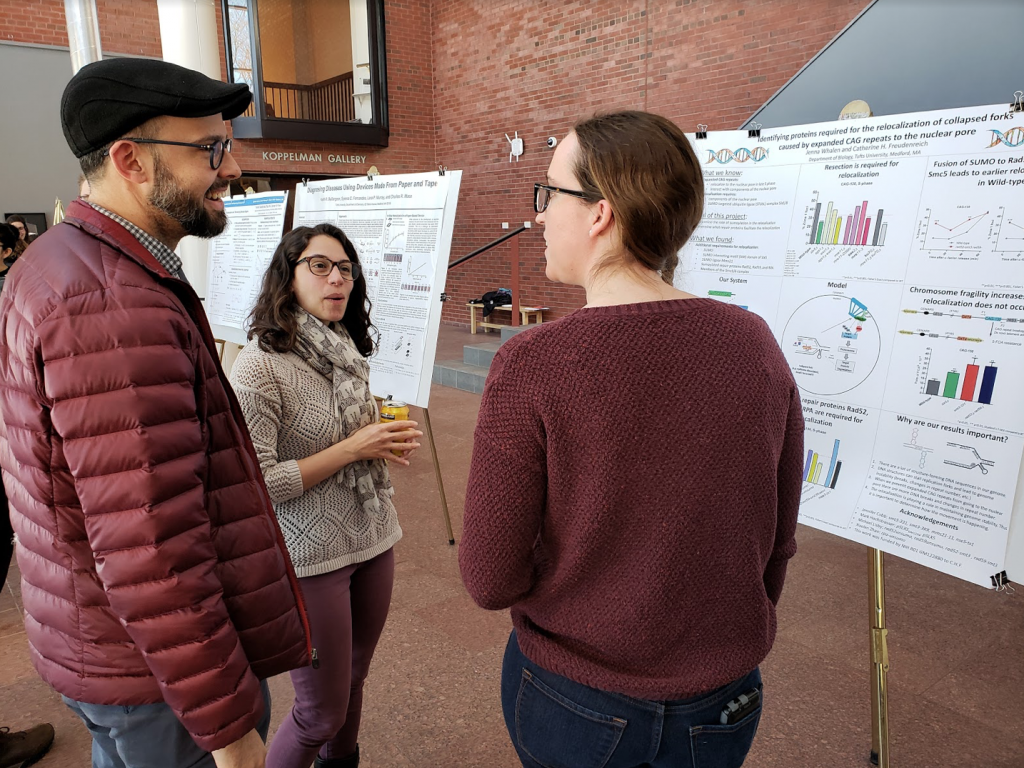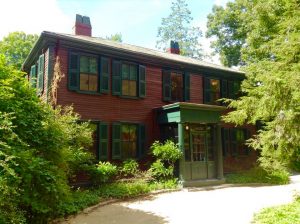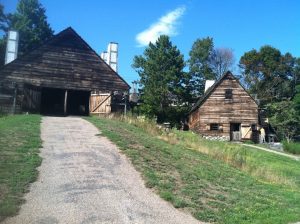
Written by Brenna Gormally, Biology Ph.D. Candidate
With finals week rapidly approaching, finding the best nooks and crannies around campus is crucial for cozy and efficient studying. Over my years at Tufts, I’ve searched for these spots and I’m happy to share them here.
The OG: Tisch Library
I can’t ignore the good old library on the Medford campus. To me, there’s something special about libraries that make you feel more productive. I think it’s probably all the other people working around you that makes you feel guilty for getting distracted. There are plenty of carrels on the bottom floor of Tisch and lots of great tables for group work. One of my favorite things is that there are quiet areas where you can go for extra focus. There is also a late-night study room that is open until 3 am most nights. Not that I condone pulling lots of all-nighters, but sometimes you have to. Oh, and to fuel those late nights, Tower Café is open until 1 am on weeknights!
Grad Students Only
Did you know that we have not only one, but two on campus graduate student lounges? These are located in West Hall and Curtis Hall and are open 24 hours a day; accessible with your Tufts ID. Both locations have free printing and mini cafes with snacks, coffee, and tea. In West Hall, there are now seven brand new carrels for extra focused studying. Curtis Hall can also be reserved for graduate student events like meetings, board game nights, and ice cream socials. The best thing is that these spaces are only accessible to graduate students. So, when Tisch is getting too crowded with undergrads, head over to a lounge.

New Hot Spot: The SEC
The Science and Engineering Complex, abbreviated SEC, is a new building on campus that houses teaching and research labs and several departments. Contrary to its STEM-focused name, there are plenty of communal spaces that anyone can use. The atrium of the building is a beautiful space with plenty of natural light and lots of tables. Kindlevan Café is also located on this level which serves up delicious smoothies, hot lunches, and snacks. If the atrium is too crowded, head up to one of the other levels which has even more tables and white board walls!
Cafes Around Campus
If you like to work off campus, there are plenty of great cafes within walking distance. Tamper is located right on Boston Avenue. It’s your classic hipster café with communal tables, tasty lattes, and good vibes. Tamper also serves delicious food; when your brain needs a boost I recommend the chicken pesto sandwich. A little-known fact—Tamper is open for dinner on Wednesdays and serves delicious craft beers. Who doesn’t need a beer every now and then to complement their work? Finally, if you’re looking for a classic, Starbucks in Davis Square is a great option. It’s pretty much a standard coffee shop, but there’s an added bonus of a fireplace! This is absolutely perfect for when the weather gets chilly.












